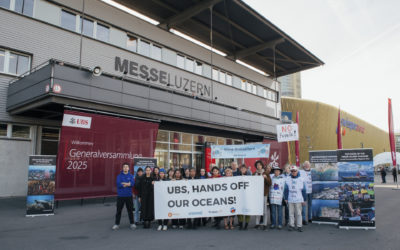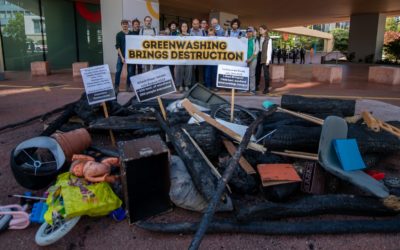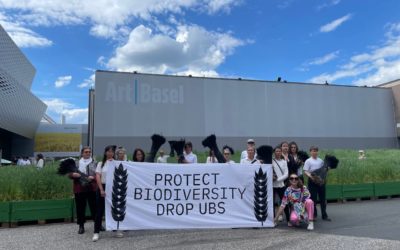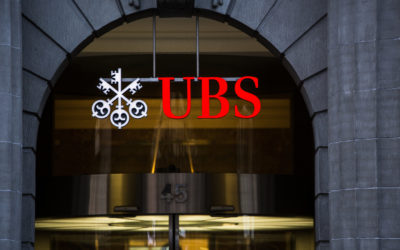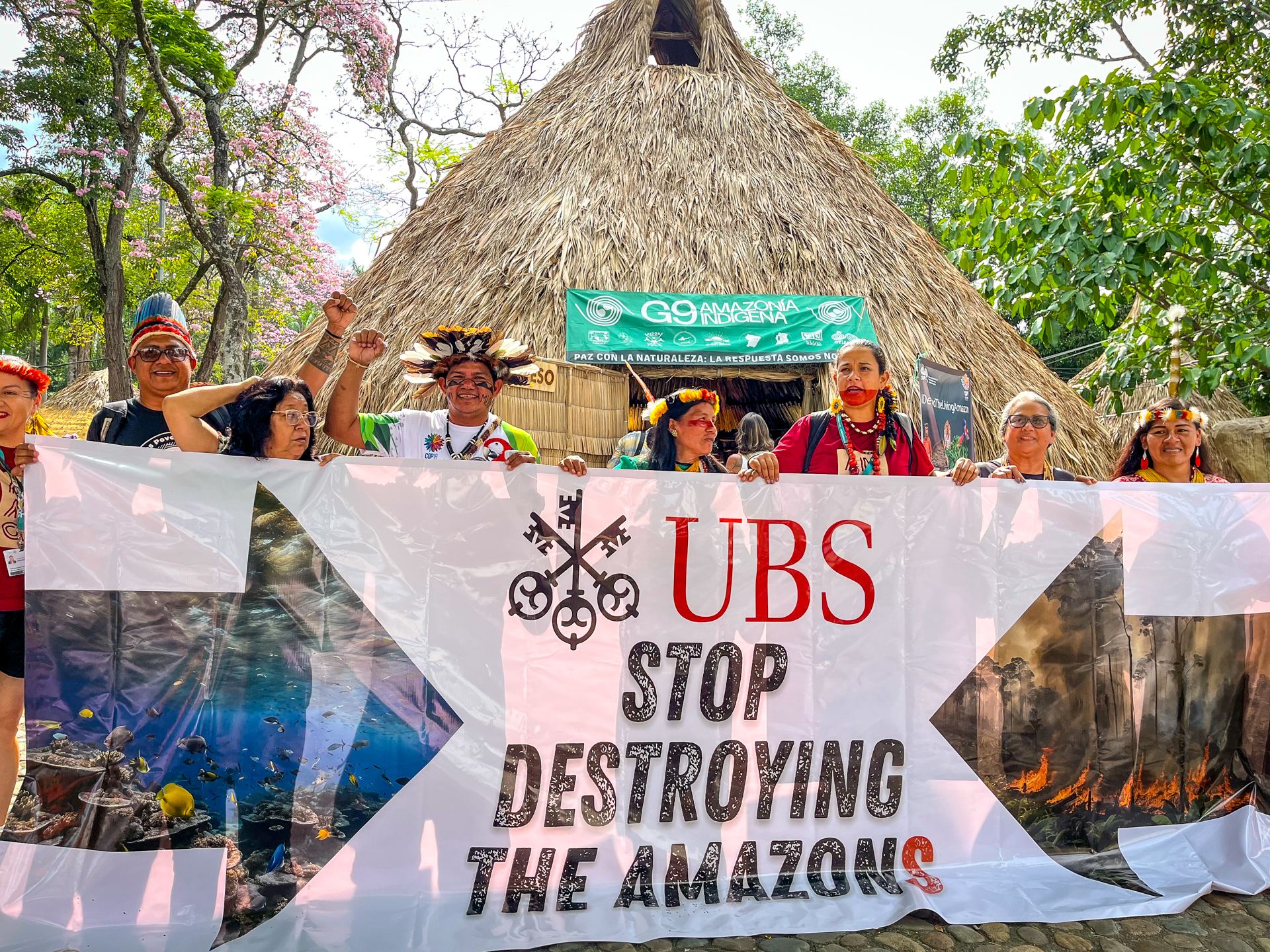
UBS
Financing Destruction, Fueling Biodiversity Loss
UBS plays a key role in the destruction of global biodiversity by financing extractive industries responsible for deforestation, pollution, and violations of Indigenous peoples’ and local communities rights. Ranked among the worst international banks for investments in fossil fuels, UBS has injected more than $210 billion into this sector since the Paris Agreement, between 2016 and 2023. Despite its commitments, UBS continues to financially support companies like Chevron, TotalEnergies, and Shell with a $44.9 billion investment in 2024.
From April 2021 to August 2022 alone, UBS and Credit Suisse provided at least $8 billion in loans and underwriting to companies developing new projects in the coal sector ($1 billion) and oil and gas extraction, including new gas projects ($7 billion). In September 2022, Switzerland’s five largest asset managers (UBS AM, CS AM, Pictet AM, Zurich, Swiss Life) held at least $22.2 billion in companies developing new projects in the coal sector ($2 billion) and new oil and gas extraction projects ($20.3 billion).

The Amazon
UBS finances Brazilian industrial agriculture and oil extraction, contributing to deforestation and violations of Indigenous peoples’ rights.

Asian Marine Life
South Asian Marine Life, UBS supports firms building LNG infrastructure in the Philippines and Thaïland threatening one of the world’s richest marine ecosystems.

One of the Worst
UBS invested 210B USD in fossil fuels since Paris Agreement and is the 10th biggest investor wordlwide!
PAST ACTIONS
UBS poses a serious risk to the Swiss Confederation and to the biosphere: its capital requirements must be increased
During UBS last annual general meeting, its Chairman Colm Kelleher described comparisons with Credit Suisse as "insulting," defended excessive variable compensation, and reiterated his opposition to higher capital requirements, citing "geopolitical tensions." However,...
UBS, HANDS OFF OUR OCEANS
Lucerne | April 8th, 2025 – Days before the UBS Annual General Meeting, a civil society alliance is drawing attention to the major Swiss bank's investment policy in the Philippines. UBS is one of the biggest institutional investors in the Philippine conglomerate San...
Building Bridges without crossing them ? Convergences and contradictions in the Swiss sustainable finance movement
Self-regulation isn't working, and the Swiss banks still don't have a transition plan or follow UN recommendations, write the members of the BreakFree collective, who were invited to Building Bridges. Building Bridges 2024 repeated the exercise. No Sergio Ermotti or...
Art Basel drop sponsorship of UBS
Basel – Collective Climate Justice, BreakFree Suisse et Basel 2030 dénoncent le mécénat d'UBS à Art Basel par le biais de l'installation artistique "Honouring Wheatfield – A Confrontation" Ce mercredi, une quinzaine d'activistes de Collectif Climate Justice et...
UBS, stop gambling with our ecosystems!
Le collectif BreakFree Suisse, le Protect VIP Network (Philippines), Campax Suisse, Greenpeace Suisse et l’Alliance Climatique Suisse mènent une action de protestation commune ce matin devant la St.Jakobshalle de Bâle où se tient l’assemblée générale annuelle de la...
ToxicTour Post-COP26
Genève, 16.11.2021. Dans la foulée de la COP26 et suite au procès de décembre 2020 via lequel Teo - poursuivit pour avoir participé à un évènement du même type - a été disculpé, nous organisons un nouveau Toxic Tour à travers la Genève de l’extraction, du trading et...

